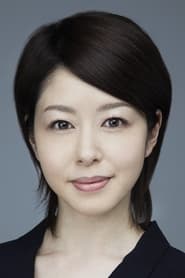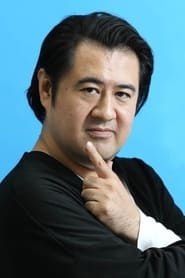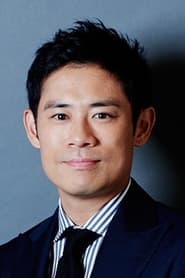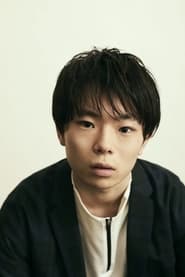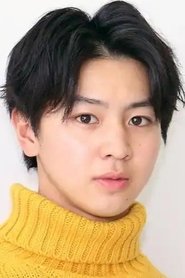
Ask Your Own Question
What is the plot?
Urumi Shizuka, the protagonist, begins the story unemployed and without any passion for teaching. To escape her unemployment, she reluctantly accepts a position as a high school teacher at Meishin Academy, a private school where the teachers strictly follow the motto: "Keep a healthy distance from the students. Don't get angry, don't praise, don't get involved." Shizuka adopts this detached approach, aiming to avoid trouble and maintain a peaceful, uninvolved teaching life due to a past trauma that makes her afraid to express her own thoughts to others.
On her first day, Shizuka encounters a bullying incident involving a student named Ayaka, who is being harassed by Hina, the leader of the first-string girls. Shizuka tries to greet the students in a friendly manner but becomes flustered under pressure from a colleague named Urami. The students begin to look down on her, ignoring her attempts to communicate. When Hina mocks her, Shizuka loses her temper and tells Hina to "shut up, brat," which immediately makes Hina and her clique her enemies. Ayaka, seeing Shizuka as a potential ally, asks for her help against the bullying.
Despite her initial reluctance, Shizuka's competitive nature surfaces as she confronts the bullying issue. She gives passionate lectures to the students, something she never intended to do. This marks the beginning of her transformation from a disengaged teacher to someone who actively intervenes in student problems. She starts to get involved in various student issues, including bullying, romance, and family problems, which challenges the school's policy of emotional detachment.
As Shizuka becomes more involved, she faces resistance from the school administration, which insists on maintaining strict control and distance between teachers and students. The administration also plans a school reform that includes removing dozens of students from the register, a move that threatens many vulnerable students. Shizuka stands up to this unreasonable policy, risking her job to protect her students. Her outbursts and confrontations with the administration create a broader crisis within the school.
Throughout the series, Shizuka builds trust with her students, especially with Ayaka, who becomes a strong ally. She navigates complex situations involving power harassment, "monster" parents, and compliance issues. Despite occasional mistakes and outbursts, Shizuka manages to keep her job and gains new responsibilities, gradually becoming a respected figure in the school community.
In the penultimate episodes, Shizuka's relationship with the students deepens, but tensions escalate as the school reform committee intensifies its efforts. A list of students forced to drop out is leaked, causing outrage among students, parents, and teachers. Shizuka uses this leak to rally support against the administration's harsh policies, delivering passionate sermons that inspire both students and staff to stand up for their rights.
In the final episode, Shizuka confronts the school administration directly, challenging their authority and exposing the negative impact of their policies. Her speeches and actions lead to a shift in the school's culture, breaking down the rigid barriers between teachers and students. The school begins to change, embracing a more compassionate and involved approach to education. Shizuka, once a reluctant and fearful teacher, becomes a transformative preacher whose influence extends beyond the classroom, changing the lives of her students and the entire school community.
More TV Shows Like This
Browse All TV Shows →
What is the ending?
The ending of The Reluctant Preacher centers on a crisis triggered by the leak of a "forced dropout list" at the school, which causes public outrage and forces the school to close temporarily. Shizuka, the protagonist, delivers a powerful final sermon to the students during a school assembly, confronting the turmoil and attempting to restore trust and hope.
Expanded narrative of the ending scene by scene:
The final episode opens with the revelation that a student named Wakisaka has leaked a list of students who were forced to drop out, aiming to frame Shizuka, the reluctant teacher turned preacher. This leak causes an immediate uproar: the school is flooded with calls from concerned parents and media inquiries, creating a chaotic atmosphere. The teachers, overwhelmed and anxious about the backlash, choose to feign ignorance, pretending they "knew nothing" to avoid further upsetting the students.
Shizuka, feeling the weight of guilt and responsibility, faces the students but, unable to fully explain the situation truthfully, ends up telling a lie in front of them to defuse the tension. This moment highlights her internal conflict and the pressure she feels as a leader.
The situation escalates when Moriguchi, a teacher who originally created the forced dropout list, is tricked by Wakisaka's scheme. Under the pressure of the moment and in front of a camera, Moriguchi confesses that he was the one who devised the plan to force students out. This confession is recorded and quickly spreads on social media, intensifying the public outcry and drawing heavy media attention to the school.
In response to the crisis, the school principal Kyoko decides to take responsibility and promises to address the students directly at a school assembly, offering an explanation and an apology. However, Shizuka struggles with how to communicate the truth to the students in her own words, feeling uneasy and uncertain about how to lead them through the scandal.
The climax of the episode is Shizuka's final sermon at the school assembly. Despite her earlier hesitation, she delivers a heartfelt and "godly" sermon that resonates deeply with the students. This sermon causes a stir on social media and symbolizes her transformation from a reluctant, disengaged teacher to a passionate preacher who confronts difficult truths and inspires her students.
Regarding the fate of the main characters at the end:
-
Shizuka (Alice Hirose): She emerges as a courageous figure who, despite her initial reluctance and fear of confrontation, steps up to lead and inspire her students through the crisis. Her final sermon marks her growth and commitment to her role.
-
Wakisaka (Mamoru Hagiwara): His actions as the whistleblower who leaked the dropout list set the crisis in motion, exposing the school's dark secret but also causing turmoil.
-
Moriguchi (Ito Atsushi): He confesses to orchestrating the forced dropout plan, taking responsibility publicly, which contributes to the scandal's exposure.
-
Kyoko (Kimura Yoshino): As principal, she takes a leadership role by promising to explain and apologize to the students, showing accountability at the administrative level.
The ending leaves the school community facing the consequences of the forced dropout scandal but also suggests a possibility for healing and change, led by Shizuka's newfound resolve.
Is there a post-credit scene?
The TV show "The Reluctant Preacher" (2025) does not have any information available indicating the presence of a post-credit scene. The detailed summary of the final episode describes the climax and resolution involving the character Shizuka and the fallout from the forced dropout list scandal, but there is no mention of a post-credit scene or additional footage after the credits in the sources reviewed.
Therefore, based on the current available information, it can be concluded that "The Reluctant Preacher" does not include a post-credit scene.
What specific incident involving bullying does Urumi Shizuka face on her first day as a teacher, and how does it affect her relationship with the students?
On her first day, Urumi Shizuka confronts a bullying incident where she intervenes in defense of a bullied student. Although such an outburst would normally lead to punishment, she earns the trust of the bullied student, who becomes a strong ally throughout the season. This incident is pivotal as it helps her find common ground with the students and stabilizes the classroom environment, allowing her to keep her job and even gain new responsibilities despite the initial crisis it triggers.
How does Urumi Shizuka's teaching philosophy and attitude toward students evolve throughout the series?
Initially, Urumi Shizuka adopts the school's motto of maintaining a reasonable distance from students--avoiding anger, praise, or involvement in their problems--to live a peaceful teaching life. However, she soon finds herself reluctantly drawn into her students' troubles, compelled by her innate competitiveness to give them 'lectures' despite not wanting to get involved. This tension between her desire to stay detached and the necessity to engage with students' issues drives much of her character development.
Who are some of the key supporting characters around Urumi Shizuka, and what roles do they play in the story?
Key supporting characters include Urami Hikaru (played by Shota Watanabe), Hayashi Seira (Sae Okazaki), Oguchi Miyuki (Noro Kayo), and Urumi Kanako (Horiuchi Keiko). These characters represent fellow teachers, students, or school staff who interact with Urumi Shizuka, contributing to the unfolding of school dynamics, conflicts, and resolutions. For example, Urami Hikaru is involved in a subplot where Moriguchi suspects him of wrongdoing, indicating complex interpersonal relationships within the school.
What is the significance of the leaked list of students forced to drop out in the final episode?
In the final episode, a leaked list reveals students who were forced to drop out of the school, highlighting a broader crisis involving attempts to remove students unfavorably from the register. This leak exposes the harsh realities and administrative pressures within the school system, serving as a climax that challenges Urumi Shizuka and others to confront institutional injustices and the consequences of their actions throughout the series.
How does the series portray Urumi Shizuka's internal conflict between wanting to avoid trouble and feeling compelled to take a stand?
The series portrays Urumi Shizuka's internal conflict through her initial reluctance to engage deeply with students or school issues, aiming to avoid trouble and maintain a low profile. However, her innate competitiveness and sense of justice repeatedly push her to intervene in student problems, such as bullying and compliance issues. This tension is a central theme, showing her struggle to balance self-preservation with the moral imperative to act, which resonates with the show's message about the importance of taking a stand rather than remaining passive.
Is this family friendly?
The TV show The Reluctant Preacher (2025) is generally a school drama with comedic and serious themes centered on a reluctant high school teacher who becomes passionately involved in her students' lives. It deals with issues such as bullying, student-teacher conflicts, family problems, and school administration challenges.
Regarding family-friendliness, the show is not specifically described as a children's program. It includes potentially sensitive or upsetting content such as:
- Bullying and its emotional impact on students.
- Conflicts involving school authority and disciplinary issues.
- Some intense emotional scenes where the protagonist expresses frustration or anger.
- Themes of trauma and personal struggle related to the protagonist's past.
- Situations involving student romance and family problems, which may include mature emotional content.
There is no indication of graphic violence, explicit content, or strong language, but the emotional intensity and school conflict themes might be upsetting for very young children or sensitive viewers.
In summary, The Reluctant Preacher is more suitable for older children, teens, and adults rather than young children, due to its mature themes and emotional complexity. Parents or sensitive viewers should be aware of the presence of bullying, emotional confrontations, and some serious social issues portrayed in the series.







